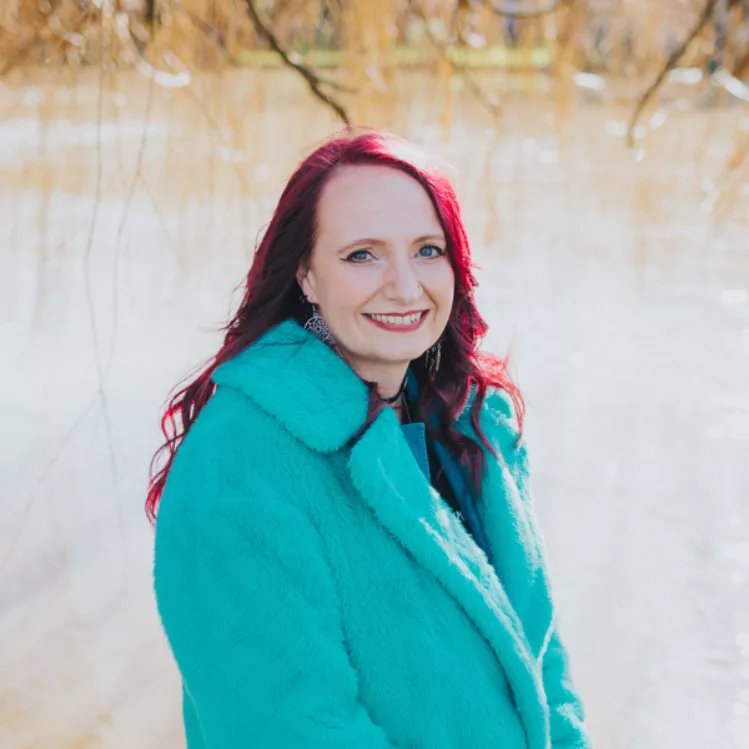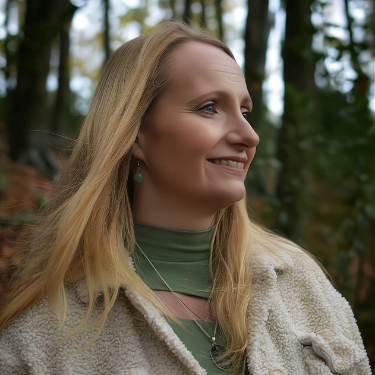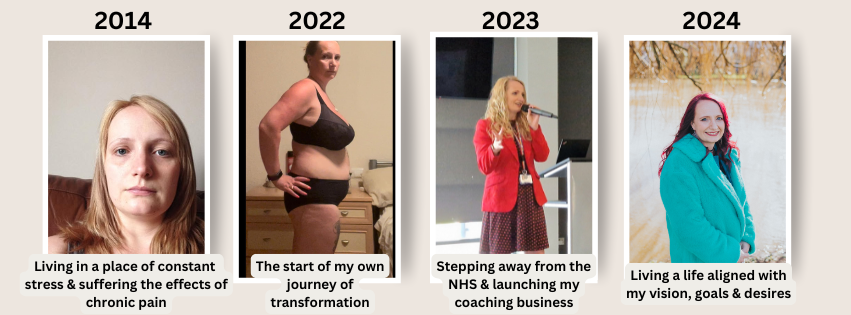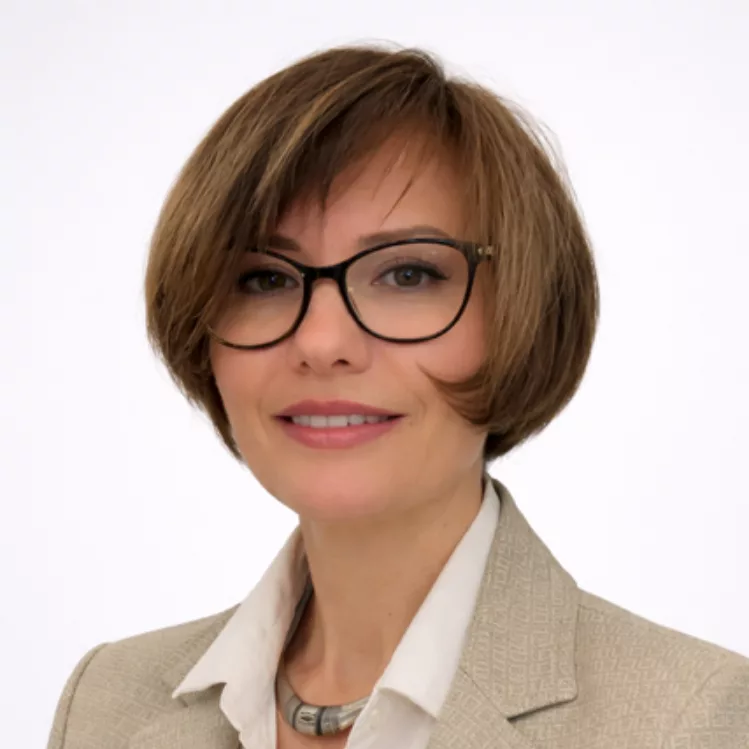
Steph Scholes: From Survival to Empowerment
Steph’s journey is a testament to the power of self-belief and transformation. As a mum, accredited life coach, trainer, and entertainer, she understands the pressures of meeting expectations while striving for a life of purpose. In 2018, Steph began unpicking limiting beliefs that had shaped her decisions, choosing instead to love herself unconditionally and pursue the life she and her boys truly deserved. With a background in nursing, project management, and mental health, Steph left the NHS in 2023 to dedicate herself fully to empowering others. Today, she helps individuals align with their true purpose, prevent burnout, and create lasting positive change.
What inspired you to begin unpicking the beliefs and behaviors that had shaped your decisions before 2018?
That is a good question. In 2018, I left my second marriage due to recognising the impact that my ex-husband’s mental health was having on my mental health. I had a moment when I realised that if I didn’t take action, then I would run the risk of leaving my children without a mother. Shortly after ending the marriage, my ex-husband attempted to end his life. I found him and saved him, which was a huge trauma and led to further traumatic events.
I came to realise through these incidents that it was time to look after my needs and ensure that I could be the best Mum possible to my boys. This meant working on my own beliefs and values to understand what I truly wanted from my life.
After years of working in the NHS, what motivated you to take the leap and focus fully on your dream of becoming an entrepreneur?
In 2018, I had a career break from the NHS due to the effects that the traumatic events were having on my mental health. I made this decision due to feeling misunderstood within my working environment and a deep ethic around no harm to patients. Continuing to work at that point felt like I was placing patients and my nursing registration at risk, so I resigned from the role I had & solely focused on my entertainment business. Everyone thought I was mad, but I knew I had to do it to have the work/life balance right and invest in myself. I returned to the NHS in 2021 during the pandemic to support the vaccination campaign as I knew it was the right time to return and do my part.
In 2023 when I again left the NHS after completing 2 years of project management for mental health & social prescribing across Cheshire East. A massive role with lots of nuances and challenges. My contract was not continued after December 2023. In the run-up to this point, I applied for and interviewed for around 10-12 senior management jobs, being pipped to the post each time. When asking for areas of improvement, I was told, “There isn’t any. You are perfect as you are” – I found this so hard to manage. Friends and colleagues around me asked if I could see that the universe was taking me in a different direction, which became obvious it was when I leant into my higher intuition and listened.
In the last few months of my contract, I found that my mental health began to suffer due to the sense of imminent change, lack of control over my future and lack of purpose within my role with it concluding, this meant that I would go to networking events to talk about my new business and would be full of energy and light yet when I walked into the office I would feel the huge emotional weight of not knowing my direction. At this point, I decided to be kind to myself and go off sick, knowing deep down that I had outgrown that environment. As December crept closer, the lead of the Community Mental Health Transformation with whom I worked extremely closely & became good friends with ended her life by suicide. This sent my head into such a spin. How could both leads on the mental health programme for our community need the support & not receive it? I knew at this point that I would not go back into the NHS permanently to be another number in the system and that I needed to do something different to support others in being able to access the support they needed so desperately, too, so I threw myself into Inspiration Coaching & Support Ltd.
You emphasize the importance of aligning with one’s true purpose. How do you guide your clients toward discovering their path?
A lot of my clients follow a similar path to mine. I offer them a safe space to speak freely about their experiences, their thoughts and their conditioning from their childhood to help unpick the challenges that they feel they are experiencing. With my 1:1 coaching clients, this is an Individualised and holistic approach which includes a variety of tools such as the self-awareness audit, 7 layers-deep exercise and other fabulous tools to support them with a true understanding of themselves and then making a decisive action plan to meet their goals and desires.
I also have other clients who attend my workshops based on menopause, well-being and the powerful 13th Rite of the womb healing modality.
I host regular Inspiration Full Moon and Inspiration Wellbeing Circles, which are an hour & 30 minutes of shared community where we reframe thoughts, seek guidance from the universe through tarot or angel readings and relax with a meditation.
I have online communities such as The Inspiration Society in which like-minded individuals all support each other and lean into practices such as meditation, stretching, tarot readings, topical sessions and much more.
Last year I had the privilege of running a two-day retreat called The Higher Authenticity Retreat which this year has been improved to include a full weekend retreat being hosted near Lancaster, UK from 5th-8th September – with beautiful accommodation, a host of modalities, activities and sessions to support people to find their purpose and live the life they desire.
Many of your clients manage high levels of responsibility. What proactive strategies do you recommend to prevent burnout and maintain overall wellness?
I have regular check-ins with my clients, and they know that, should they need to, they can call when they are feeling overwhelmed. To encourage the prevention of burnout, we implement proactive (and simple) strategies such as the Eisenhower Matrix, a fabulous prioritisation tool to understand which tasks require immediate attention, which can be delegated, and which aspects are just thoughts needing no action.
I have also supported clients in implementing boundaries such as taking work emails off their phones, so they do not feel the sense of being constantly available or only having certain diarised times when they access their emails and deal with them then and there.
I also support my clients’ understanding and implement practices such as lunchtime walks or reflection time to support them with levels of potential overwhelm.
The key aspect in finding the right tools to manage overwhelm and burnout is to understand where the thought processes and feelings originate and to reframe and reprogram them.
How do you integrate your knowledge of physical and mental health into your coaching practice to create a holistic approach?

As a nurse and executive coach, I can integrate both integral knowledge bases within my coaching approach. This is also further supported by my own lived experience of being diagnosed with a chronic pain condition, fibromyalgia, and my mental health, along with the experiences of those around me who have directly needed my support. I can understand how the physical and psychological aspects of well-being are so intrinsically linked and how such simple imbalances can have a huge impact on how people show up, respond and act on a general basis. This provides me with a much deeper insight than other practitioners who may be able to relate to aspects but do not have the scientific knowledge or depth of lived experience that I have.
This can be extremely helpful when delivering my menopause workshops, as I can understand the potential challenges with medicalised models and provide alternative insights or encourage individuals to seek second opinions or be their fierce advocate when they are not getting the answers they need. The project management experience also means that I have a deeper knowledge of the system to support people in accessing the right level of support.
What unique challenges do individuals in high-stress environments face, and how do you equip them with the tools to manage those challenges?
Some of the challenges that clients have faced are:
Fear of speaking up at meetings – we worked through inner child trauma and belief patterns that were associated with this through talking and reframing scenarios that had led to this, along with action plans to break things down into manageable steps & improvements with boundaries.
Challenges with stepping into new roles and learning to delegate due to fears that things will not be done to their standard – We used the Eisenhower Matrix to assess the priorities of tasks, implemented team meetings and check-ins to support with open communication and updates & set up feedback measures to support with allocation of tasks to staff who had the strengths in the relevant areas to relieve anxieties.
Feeling the need to always appear busy – We talked through the inner child conditioning that led to this thought process and worked through reframing to the now adult version of the client, allowing forgiveness for childhood actions and supporting with understanding the power of proactive working and time blocking.
Avoiding situations that they perceive as challenging conversations – inner child and domestic violence responses, which we unpicked through talking, 7 layers of deep questioning practices and meditation to embed new patterns.
Asking for an increase in wages to reflect the increase in work & responsibility – broke down the desire into small, actionable steps and worked on supporting with confidence building. Used visualisation techniques and evidence compiling to support feeling comfortable in presenting a case for a wage increase.
Struggling to maintain work/life balance – implementing Eisenhower Matrix again and removing work emails from phone to enable complete switch off from work when not in the office – this was a super powerful action for the client and has made a huge difference meaning they are more present at home and feel they are taking some of the burden from their partner now.
Relationship breakdowns both professionally and personally – I have supported them in managing these situations with tools such as completing self-awareness audits and core values propositions to understand what they would like things to look like, with safe spaces to discuss their thoughts and feelings about the relationship breakdown enabling them to gain insights into the signs that may have been there before this point and how they could negate this in future.
You mention that acknowledging true faith in yourself and your intuition was a turning point. How do you encourage others to build that same trust in themselves?
I always encourage them to acknowledge the catalyst that has brought them to coaching & the experiences to date that have led them on the journey they have encountered. Often, the people who are engaging with coaching are already intuitive but have not fully opened to this prospect, usually because they have been conditioned to believe that they are not. Through working on themselves and aligning with their values, they can reframe this.
Via reconnecting with their inner knowing through reflection and intentional action, they can reinforce how they truly feel, think and desire the world to be. It takes time to embed changes and alter the conditioning, but with the safe space, accountability and support I provide, it is wholly possible.
What was the biggest lesson you learned while transitioning from the NHS to entrepreneurship?
The biggest lesson I learned while transitioning from the NHS to entrepreneurship was recognising the importance of embracing uncertainty and trusting my vision. In the NHS, I operated within structured systems and protocols, but stepping into entrepreneurship required me to become comfortable with taking risks, making decisions without a clear roadmap and believing in my ability to navigate challenges.
I learned that success doesn’t come from having all the answers upfront but from staying adaptable, learning through experience, and trusting my intuition to guide me. This shift taught me resilience, patience, and the power of aligning my work with my passion for empowering others.
I have also learnt the importance of being able to look after myself, managing my responsibilities whilst building a business from scratch.
You’re committed to helping clients achieve lasting change. What is the key to ensuring that transformation endures beyond the coaching experience?
The key to ensuring lasting transformation beyond the coaching experience lies in empowering clients to develop self-awareness, build sustainable habits & continue the journey with a growth mindset. I focus on helping clients identify their core values and align their actions with those values, which creates a strong foundation for lasting change. Throughout our work, I encourage them to take ownership of their journey by setting realistic, actionable goals and celebrating progress along the way. I also equip them with practical tools and strategies to navigate challenges and maintain momentum after our sessions end. By fostering resilience, self-trust, and a sense of purpose, clients are better prepared to continue their growth long after our coaching relationship concludes.
What is your ultimate vision for the impact you want to create through your work as a coach, trainer, and entertainer?
My ultimate vision is to empower individuals to live authentically, embrace their strengths, and create meaningful, lasting change in their lives. As a coach, I guide people toward self-discovery and growth, helping them build confidence and resilience. As a trainer, I equip them with practical tools and knowledge to enhance their physical and mental well-being. As an entertainer, I inspire and connect with people through storytelling and experiences that spark joy, reflection, and a sense of possibility. By combining these roles, I aim to create a ripple effect where individuals not only transform their own lives but also positively impact those around them, ultimately building healthier, more empowered communities.
I have a vision that I have been working towards since before the lockdown, of a community/retreat space which will enable access for anyone who wishes to seek solace from the challenges in life. This space will have a café where people can have nutritious and healthy meals, drinks and conversations, space for self-development, and access to healing modalities and sessions such as coaching, reiki, therapy and other accessible treatments. This space will also host events such as wellbeing circles, workshops, retreats and other networking/collaborative events. There will be access to grounding elements such as growing & cultivating fresh fruit and vegetables, and experiences such as hot tubs, ice baths, wild water swimming and outdoor activities. This is a vision that my Fiancé (soon-to-be husband) and I both share and wish to develop as a legacy to the work we both do within mental health and social care, along with something for the future generations of our family.






